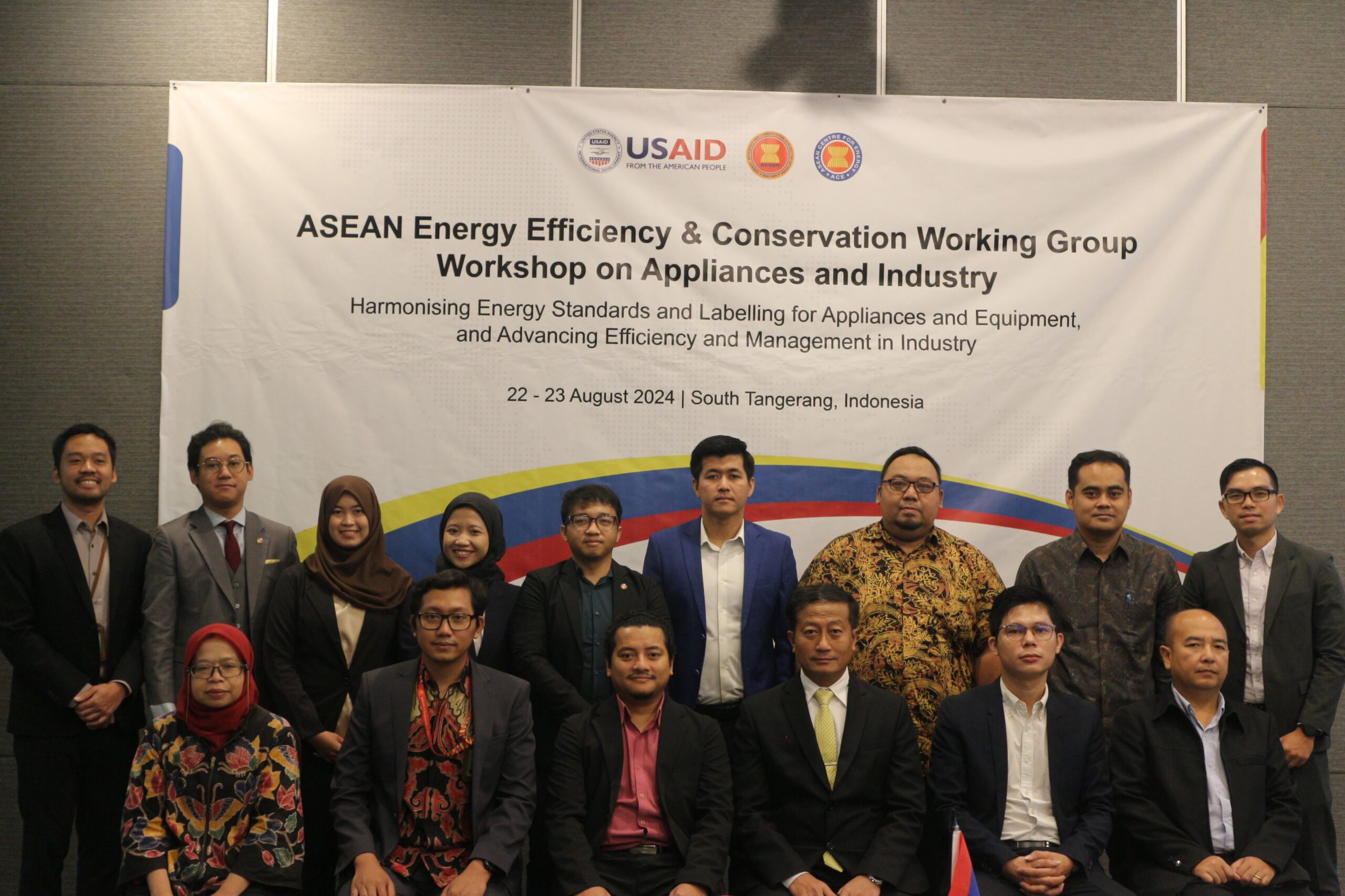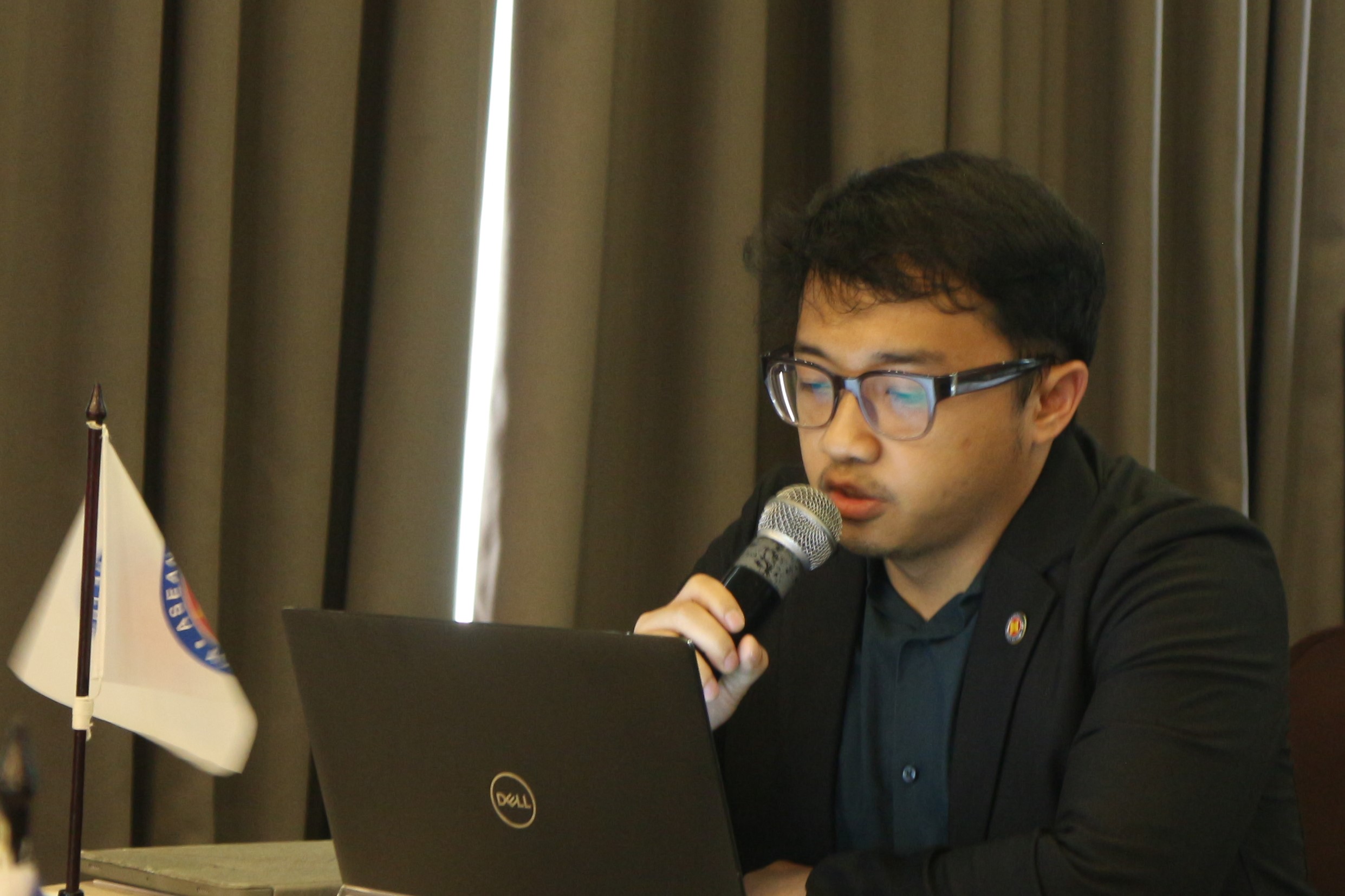Menu

Photo 1. Participants of EE&C-SSN Working Group Workshop: Day 2 on Industry
The ASEAN Centre for Energy (ACE), supported by the USAID Southeast Asia Smart Power Program (SPP), successfully conducted the 1st ASEAN Energy Efficiency & Conservation Working Group Workshop on Appliances and Industry. The workshop aimed to accelerate the completion of key milestones outlined in the ASEAN Plan of Action for Energy Cooperation (APAEC) under the Energy Efficiency and Conservation (EE&C) Programme Area, specifically on appliances and industrial sector.
The second day of the workshop, held on 23 August 2024, focused on milestones within Outcome-Based Strategy (OBS) 5: “Advance Energy Efficiency and Energy Management in Industry.” The event was attended by members of the Energy Efficiency & Conservation Sub-Sector Network (EE&C-SSN) Working Group on Industry, representing their respective ASEAN Member States (AMS). Of the 40 participants on the second day, 24 attended the event in person in South Tangerang, Indonesia. Approximately 62.5% of the participants in the workshop on industry identified as male, with the remainder identifying as female.
Norazrin bin Rupadi, Assistant Director at Energy Commission, Malaysia, opened the workshop with remarks as the Chair of the Working Group on Industry. He underlined the urgency to accomplish the milestones within OBS 5 on Industry and illuminated the significance of the day’s discussion as a guide in establishing a robust energy performance benchmark and developing comprehensive guidelines that will serve as a blueprint for the industrial sector across ASEAN.

Photo 2. Opening Remarks by Norazrin bin Rupadi as Chair of the Working Group on Industry (left) and Scene Setting by Mardika Firlina from ACE (right)
Mardika Firlina, Associate Officer of Energy Efficiency and Conservation (CEE) Department at ACE, followed with a presentation encapsulating the energy outlook in ASEAN’s industrial sector. According to the 7th ASEAN Energy Outlook published by ACE in 2022, the industrial sector is the most energy-intensive sector in ASEAN, with total energy consumption predicted to reach 544.30 Mtoe by 2050. This projection underscores the critical importance of EE&C initiatives within the ASEAN industrial sector.
During Session 1 of the EE&C-SSN Working Group Workshop on Day 2, representatives of AMS shared their respective country reports covered key topics within EE&C in the industrial sector, including the latest updates of energy efficiency policies and regulations, key challenges for energy efficiency measures, plans to strengthen EE&C policies, as well as coverage of the cement industry landscape, highlighting the overview of its market situation and energy consumption trends.
Dan Valeriz, Technical Officer of CEE Department at ACE, started Session 2 with an introduction to the energy benchmarking guideline for the cement industry in ASEAN. Agung and Sulestyo from EnerCoss, who were consulted for this project, were brought in by ACE to present the methodologies chosen for developing this guideline. Participants remarked during the discussion that data collection poses a great challenge to the completion of this study. The discussion also pointed out the imperative for ACE to design an energy benchmark guideline for cement industries that can be used by both policymakers and industry players, noting the need for a holistic approach to be covered in the guideline.

Photo 3. Presentation on Energy Benchmarking for the Cement Industry in ASEAN by Dan Valeriz from ACE
Continuing with the focus on the cement industry, the third session centred on the plan for conducting energy performance benchmarking. Dan Valeriz began the discussion by presenting potential benchmarking scenarios for the cement industry across ASEAN. To support this effort, ACE will require country-level data on the cement industry from each AMS.
The subsequent session began with a status update and an overview of plans for the next milestones for OBS 5 on industry, presented by Dan Valeriz. Following his presentation, the meeting discussed the plan to conduct these milestones, including the timeline of activities and potential collaborations with various stakeholders.

Photo 4. Summary and Way Forward for OBS 5 by Rio Jon Piter Silitonga from ACE (left) and Closing Remarks by Norazrin bin Rupadi as Chair of Working Group on Industry (right)
Rio Jon Piter Silitonga, Senior Officer of CEE Department at ACE, concluded the workshop by delivering a summary and outlining the way forward for the working group workshop on industry. As the Chair of the Working Group on Industry, Norazrin bin Rupadi provided closing remarks, encouraging members to maintain the momentum generated during the workshop and to sustain the collective spirit as they work towards achieving the shared goals of OBS 5 on Industry. The EE&C Working Group Workshop officially concluded with closing remarks from Dr Nuki Agya Utama, Formar Executive Director of ACE, who emphasised the importance of continued collaboration and support from all AMS in reaching collective targets within the EE&C landscape.
